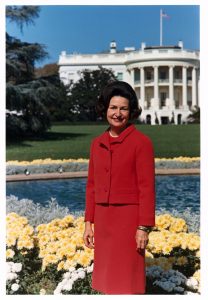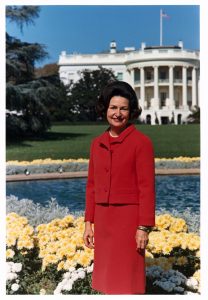Lady Bird Deeds: How an Enhanced Life Estate Deed Could Save You Money

Lady Bird Deeds
When individuals are planning out their estate, they are often considering what to do with property that they are still using. For example, parents may want to make sure their children will inherit their home. However, the parents still want to live in the home for the rest of their lives. An Enhanced Life Estate Deed allows the owner to retain their present rights in the property while ensuring that the property will transfer directly to their intended beneficiaries after the owner passes away.
There are a number of reasons that you may decide an Enhanced Life Estate Deed transfer of your property is an option that you want to pursue. For example, you may decide that you want to leave open the option to sell the property, to take a person off the deed, or to rent the property. That’s where Enhanced Life Estate Deeds, also called “Lady Bird” Deeds, come in. A Lady Bird Deed allows the grantor of the property to retain full right to convey their property.
A regular Life Estate is a sharing of the ownership of the property; one person has the present life estate and the other party has a future interest in the property. A regular Life Estate does not allow the present interest holder to convey the property without the agreement of the future interest holder.
With Lady Bird Deeds, you are still creating a future interest for the other person, but the owner of the property does not relinquish any rights. This means that if the owner decides to, they can sell the property without needing any agreement from the beneficiary. This is where the “enhanced” part of the name comes in.
The Lady Bird Deed could be a great alternative for people who have a small number of intended beneficiaries to their property, or who do not want to spend as much as it would cost to establish a trust. Similar to a trust, a Lady Bird Deed does not transfer the property until the life estate holder passes away. However, a Lady Bird Deed is a much more cost-effective method to transfer less complex property to a beneficiary. If you are planning to transfer a property by trust, it may be worth it to ask the attorney if the same result could be accomplished with a Lady Bird Deed.
Please Note: Only a handful of states, including Florida, accept Lady Bird Deeds. Consult with your attorney to determine whether this method of planning is an option for you.
Sample Language of a Lady Bird Deed
The deed will start with the usual language of who the grantor(s) and grantee(s) are and the addresses for both parties. Then, the language will provide for the creation of a life estate with a future interest to the grantee beneficiary. Here is an example of what the language may look like:
For good and valuable consideration paid by the Grantee Beneficiary, the receipt of which is hereby acknowledged, the Grantor does transfer and convey the following described property to the Grantee Beneficiary effective on the Grantor’s death…
Then, that language is followed by a legal description of the property. The enhancement making this an Enhanced Life Estate Deed is an additional clause that specifically designates to the grantor the ability to convey the property during his or her lifetime. Sample language may include:
The Grantor reserves a life estate for himself/herself during the Grantor’s lifetime coupled with an unrestricted power to convey during the Grantor’s lifetime, which includes the power to sell, gift, mortgage, lease, and otherwise dispose of the property, and to retain the proceeds from any conveyance.
This language is what makes the regular life estate deed enhanced.
As with many legal documents, the Lady Bird Deed must have the signature of the grantor(s) and the signature of the grantor must be witnessed by two individuals and all the signatures must be notarized.
Caution: There Are a Few Cons to Lady Bird Deeds
Unlike a will or a trust, the Lady Bird Deed does not account for what will happen if one of the intended beneficiaries passes away before the owner of the property. At best, this could mean that the property is not distributed the way that you intended. Even worse would be that the other surviving intended beneficiaries would still have to go through probate, which you were likely trying to avoid.
As mentioned earlier, only a handful of states recognize Lady Bird Deeds. Check with an attorney before proceeding with a Lady Bird Deed, because if your state does not recognize these types of deeds, you may not actually achieve the result you intended.
Another drawback to the Lady Bird Deed is that some Title Insurance Companies may not recognize Lady Bird Deeds. Title insurance is used to cover the seller and buyer of a property in case there are any issues with the ownership documents. While this may or may not impact your individual situation, it is something to understand before you decide to transfer your property with a Lady Bird Deed.
Okay, But Why Is it Called a Lady Bird Deed?

In 1963, in the aftermath of the national tragedy of the assassination of President John F. Kennedy, Lyndon B. Johnson was inaugurated as the 36th President of the United States. His first lady was Claudia Alta “Lady Bird” Johnson.
The Florida lawyer who created the Enhanced Life Estate Deed explained the concept using an example with the members of former President Johnson’s family, including his first lady, Lady Bird. The example must have been an effective way to introduce the concept because since then, the Enhanced Life Estate Deed has been often referred to as a Lady Bird Deed.
A Lady Bird Deed may be an efficient way for you to transfer your property to the beneficiaries you choose. Lady Bird Deeds are less expensive than maintaining a trust for the same property. Also, unlike a regular life estate, a Lady Bird Deed will still allow you to convey the property if you decide that is what you want to do.
The Florida lawyer who created the Enhanced Life Estate Deed explained the concept using an example with the members of former President Johnson’s family, including his first lady, Lady Bird. The example must have been an effective way to introduce the concept because since then, the Enhanced Life Estate Deed has been often referred to as a Lady Bird Deed.
A Lady Bird Deed may be an efficient way for you to transfer your property to the beneficiaries you choose. Lady Bird Deeds are less expensive than maintaining a trust for the same property. Also, unlike a regular life estate, a Lady Bird Deed will still allow you to convey the property if you decide that is what you want to do.
Any decisions you make about your estate planning will have an impact on how your property is distributed to your beneficiaries. It is highly recommended that you seek the advice and guidance of a practiced attorney to help you with this important task. If you are interested in transferring your property to a beneficiary using a Lady Bird Deed, contact us at Stivers Law at 305-456-3255 to schedule a consultation.



